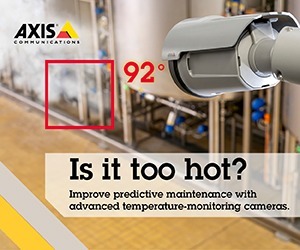| |
| |
 |
 |
| |
 |
|
@{mv_date_MMM d, yyyy}@ |
| |
|
| |
In this week's newsletter, we showcase half (i.e. five) of this year's winners in our Top 10 Under 40 Awards program. Their accomplishments have already been significant. Watch for the remaining five next week!
- Peter Saunders, Editor
|
|
| |
|
| |
As process leader for Convertus Group’s biofuel facility in Surrey, B.C., she oversees and optimizes the conversion of organic waste into natural gas and compost.
» Read More...
He has been with Associated Engineering since a stint as a summer student, focusing on municipal infrastructure across Saskatchewan.
» Read More...
Lidia Pawlikowski was one of the keynote speakers at this year’s Advance Women in Engineering virtual summit. Here now is her accompanying feature article.
» Read More...
|
| |
|
| |

Data center and utility construction projects are forecasted to grow thanks to grid updates and AI computing. These cable-dense projects typically require a large quantity and varying sizes of elbows.
Increasingly, electrical contractors and electrical engineers are relying on fiberglass conduit elbows for raceway bends and stub-ups. Fiberglass elbows eliminate burn-through due to their lower coefficient of friction than PVC, PVC-coated steel and galvanized rigid steel.
In our updated Elbow eGuide, learn why lightweight, durable fiberglass conduit elbows should be used on your next data center or utility project.
» Download the eGuide
|
| |
|
| |
The AVP of operations for AECOM’s British Columbia transportation practice leads some infrastructure personnel on rail, tunnel, highway, road and bridge projects.
» Read More...
Her roles include leading a Canada-wide initiative to update electrical specifications and co-chairing the Toronto chapter of Women@Stantec.
» Read More...
As an associate and a senior project manager with Hatch, she is currently helping the firm bid for the largest infrastructure project in Canadian history.
» Read More...
|
| |
|
| |

Axis thermal cameras are a great first line of defense. Every object – organic or inorganic – emits infrared radiation (heat) as a function of its temperature. Using thermal imaging technology, thermal cameras see this heat and convert it into visible images. Since the objects themselves emit heat that thermal cameras detect, thermal cameras can detect in all light conditions, 24/7.
» Learn more
|
| |
|
| |
|
|
| |
| |




